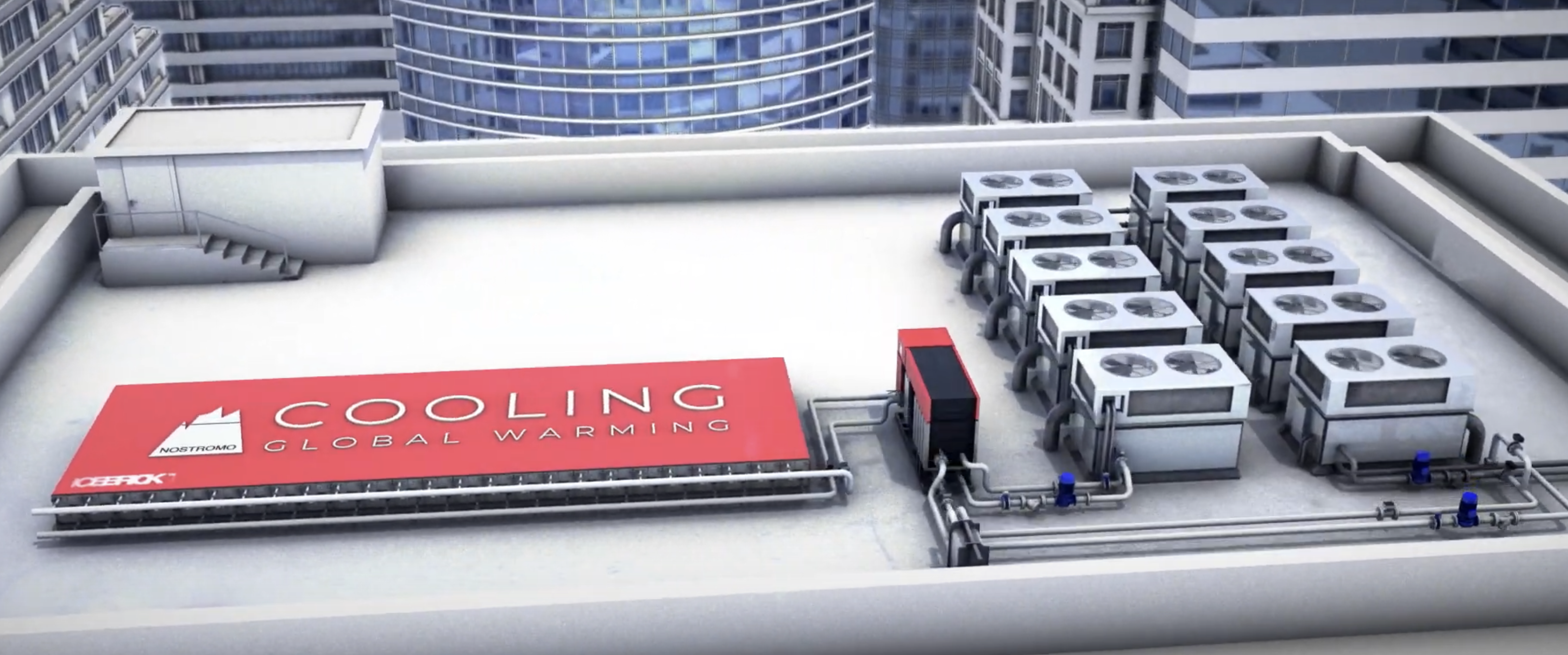The General Services Administration and the U.S. Department of Energy have selected 17 innovative building technologies to evaluate in real-world settings throughout GSA’s real estate portfolio.
This year, field validation will be conducted on five of these technologies that will support commercial buildings decarbonization and the implementation of DOE’s recently released Decarbonizing the U.S. Economy by 2050: A National Blueprint for the Buildings Sector. The technologies include modular ice-based energy storage from Nostromo Energy, a modular cold-climate air-source heat pump from Trane Technologies, an air conditioning system incorporating a liquid desiccant and evaporative cooling from Blue Frontier, a refrigerant life cycle management strategy from êffecterra, and an internet-of-things based building management system from 75F.
The evaluation will consider how well products reduce energy use and greenhouse gas emissions. HVAC in commercial buildings consumes up to 44% of on-site energy, according to a DOE news release.
GSA anticipates that the results of this year’s evaluations will be available in 2026. DOE and GSA have partnered through the same program since 2015. Since 2011, the program has evaluated 107 technologies, 23 of which have been deployed across more than a third of GSA’s federally owned portfolio.
Related Stories
| Sep 7, 2012
Lorain, Ohio considers halting downtown construction while it works out development plan
Construction would stop downtown for six months while Lorain, Ohio officials consider a development plan for the city, according to new legislation.
| Sep 7, 2012
Business, labor groups push for easing of California’s Environmental Quality Act
Business and labor groups have combined forces to push for a change to California's Environmental Quality Act, specifically its complex review process for building and construction projects.
| Sep 7, 2012
Twenty years later, Florida contractors cite Hurricane Andrew as construction game-changer
Remarking on the 20th anniversary of Hurricane Andrew, which devastated south Florida; contractors are noting the storm’s impact on their industry—including the state’s adoption of tougher building codes.
| Sep 7, 2012
At risk for nine types of natural disasters, Texas trails most coastal states on building codes
Texas has the most diverse weather risk in the country, with exposure to nine different types of natural disasters.
| Aug 30, 2012
OSHA plans new crane-safety standards for demolition and underground work
The new rule will streamline OSHA’s standards by eliminating the separate cranes and derricks standard currently used for underground and demolition work.
| Aug 30, 2012
Federal government cancels defense contracts worth $2.15 billion
This action may foreshadow federal spending cuts scheduled for year's end if Congress takes no action on the federal budget.
| Aug 30, 2012
Public comment period is open for CRRC-1 standard
The CRRC-1 standard covers specimen preparation and test methods for measuring the initial and aged solar reflectance and thermal emittance of roofing products.
| Aug 30, 2012
LEED system's footprint reaches 2 billion sf, with 7 billion sf in the pipeline
About 7 billion more sf of commercial space is expected in the pipeline.
| Aug 30, 2012
Georgia drops LEED wood source standard on state projects
Currently, LEED green building standards only accept timber products certified by the Forest Stewardship Council (FSC).
| Aug 21, 2012
AGC offers second edition of the Federal Government Contractor: Ethics & Compliance Programs manual
This publication helps contractors appreciate the grounds for an alleged violation of the expected standards of business conduct and ethics, and to develop, implement, and document an effective ethics and compliance program.
















